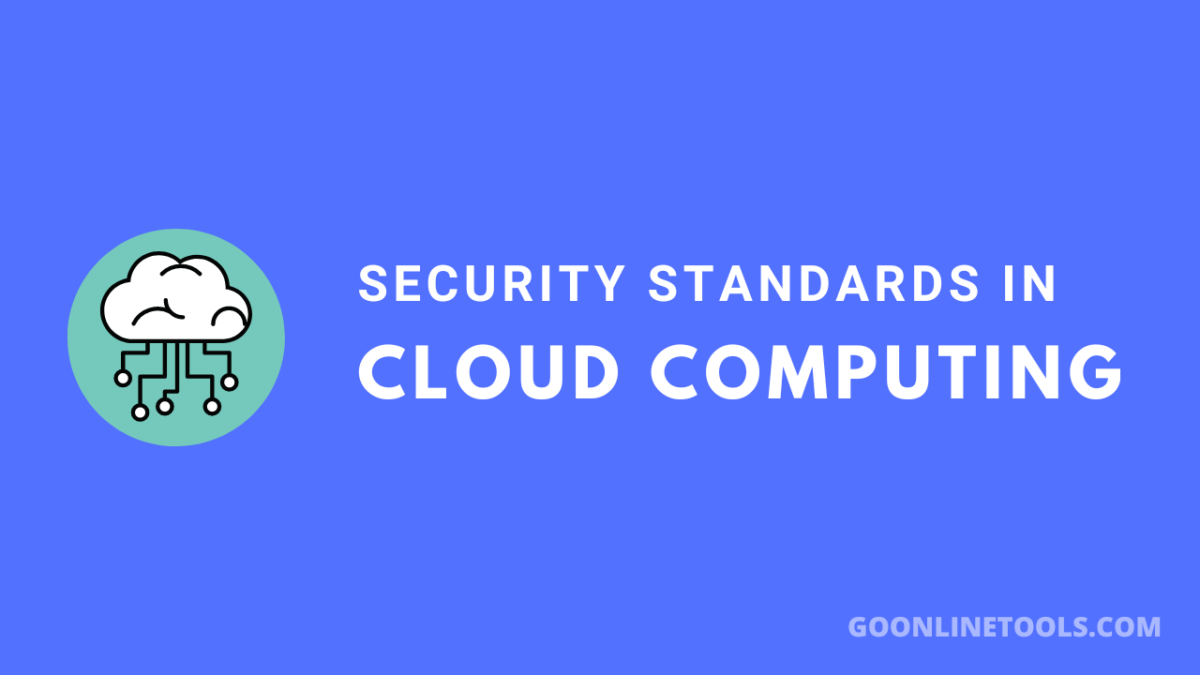As we soar through the cloud-filled skies of modern computing, securing our data and applications has become more important than ever. With countless risks hiding in these digital clouds, knowing which security standards to follow is essential.
In this insightful article, we’ll explore a range of vital guidelines that help protect your valuable information while using cloud services.
Join us on this exciting adventure through the territory of cybersecurity for an invaluable understanding that will elevate you to new heights in maintaining data protection amidst a rapidly evolving technological world!
1. ISO/IEC 27001
The first security standard, ISO/IEC 27001, is an internationally recognized framework for managing information security. Essentially, it helps organizations to protect their data by implementing a robust information security management system (ISMS).
This standard not only covers the technical aspects but also considers processes and people involved. One of the many aspects that ISO/IEC 27001 may touch upon can be seen in this guide to web application security testing that ensures that apps are secured against potential threats.
Following this standard shows your clients you’re committed to safeguarding their information from unauthorized access and breaches, building trust and reliability in your services.
2. SOC 2 Type II
SOC 2 Type II stands for System and Organization Controls. It’s a compliance report that focuses on how effectively a service provider is managing five Trust Services Criteria: security, availability, processing integrity, confidentiality, and privacy.
With this certification, organizations demonstrate their commitment to maintaining top-notch data protection principles over an extended period.
In essence, SOC 2 Type II gives users greater confidence in a provider’s ability to safeguard their information and workloads in the cloud consistently. It’s an essential stamp of approval showcasing significant dedication to data privacy and security.
3. GDPR
GDPR (General Data Protection Regulation) is a comprehensive data privacy regulation that applies to organizations operating within the European Union or dealing with EU citizens’ personal information.
The main goal of GDPR is to give individuals greater control over their data while setting strict rules for businesses. This ensures that every organization handles user data with utmost care and transparency.
Adhering to GDPR not only prevents significant fines and penalties but also builds customer trust by demonstrating a commitment to respecting privacy rights. In summary, complying with GDPR is essential when working with personal data from anyone located in the EU.
4. FedRAMP
FedRAMP (Federal Risk and Authorization Management Program) is a US government-wide program that sets security requirements for cloud-based services handling sensitive federal information. Its main aim is to ensure uniformity in federal agencies’ approach to cloud security and minimize the risks associated with data breaches.
By complying with FedRAMP standards, cloud service providers can demonstrate their dedication to implementing strong security controls when serving the needs of government clients.
In a nutshell, FedRAMP-certified providers are trusted partners for government projects and federal institutions as they consistently work towards mitigating risks in cloud environments.
5. HIPAA
HIPAA, or the Health Insurance Portability and Accountability Act, is a US regulation focused on safeguarding patient health information. It requires organizations that deal with protected health information (PHI) to follow certain guidelines to guarantee data confidentiality, integrity, and access.
This goes for healthcare providers as well as businesses working with them in cloud-based settings. In short, when you comply with HIPAA, you’re showing your dedication to keeping sensitive medical data secure.
This makes you a trustworthy partner for organizations in the healthcare industry that rely on cloud services to manage PHI responsibly and safely.
6. PCI DSS
Payment Card Industry Data Security Standard is specifically designed for businesses that handle credit and debit cardholder information. The primary goal of PCI DSS is to make sure that organizations follow best practices to maintain payment security, prevent data breaches, and protect sensitive cardholder details.
In essence, being compliant with PCI DSS sends a strong message that your business takes the responsibility of safeguarding customer financial information seriously. It showcases your organization’s dedication to providing a secure transaction environment with cloud-based solutions.
7. NIST SP 800-53
NIST SP 800-53 (National Institute of Standards and Technology Special Publication 800-53) document offers a comprehensive set of guidelines and controls to help organizations in the US government sector manage their cybersecurity risks effectively.
By adopting NIST SP 800-53 recommendations, you not only make your systems more resilient against cyber threats but also showcase your commitment to information security best practices.
In simpler terms, following this standard ensures that you’re giving priority to data protection while working on sensitive projects involving the US government or its affiliated entities.
Ready to fortify your digital kingdom with cloud computing security standards? Don’t wait any longer – start implementing these trusted guidelines today and provide your organization with a reliable shield against potential threats lurking in the digital era.

Leave a Reply